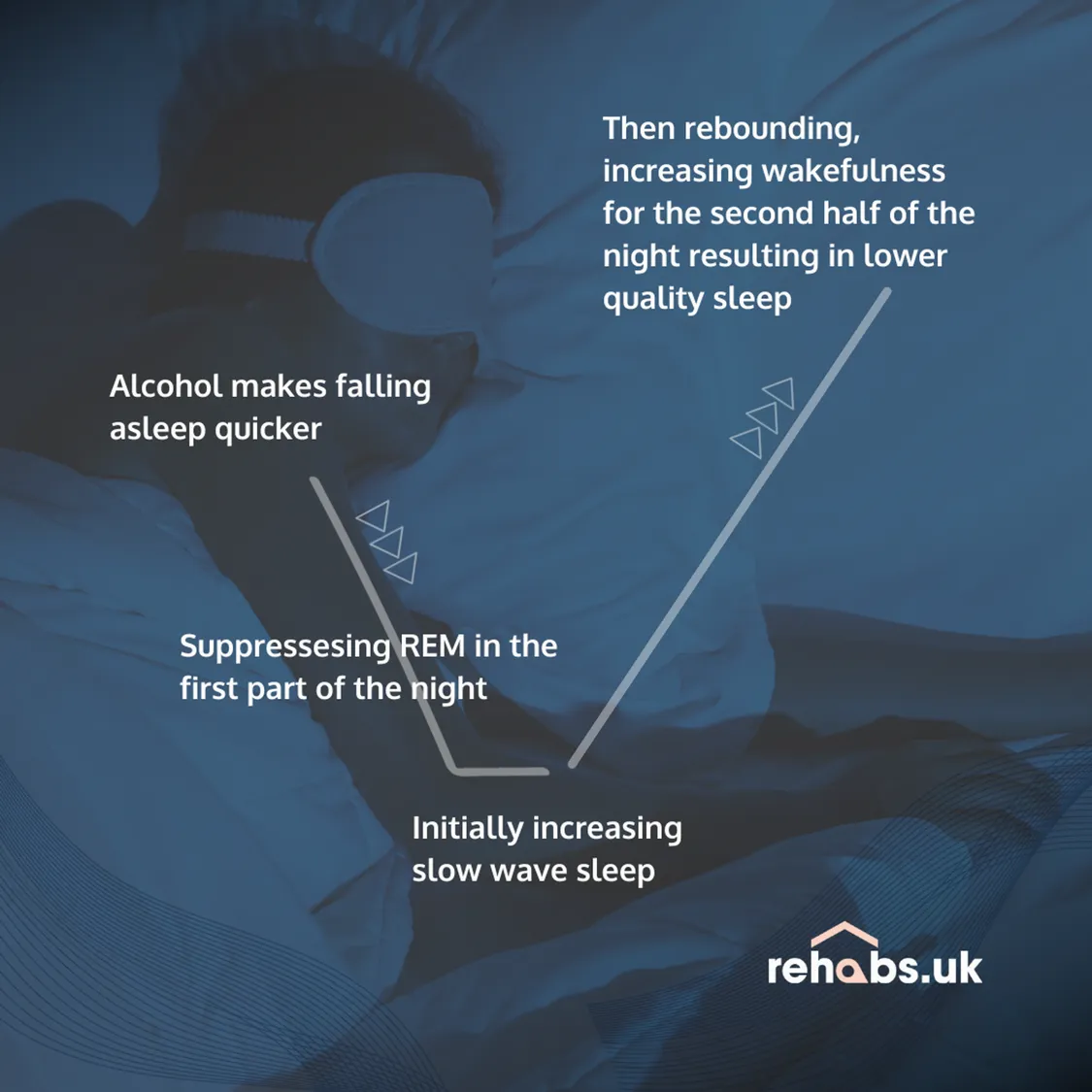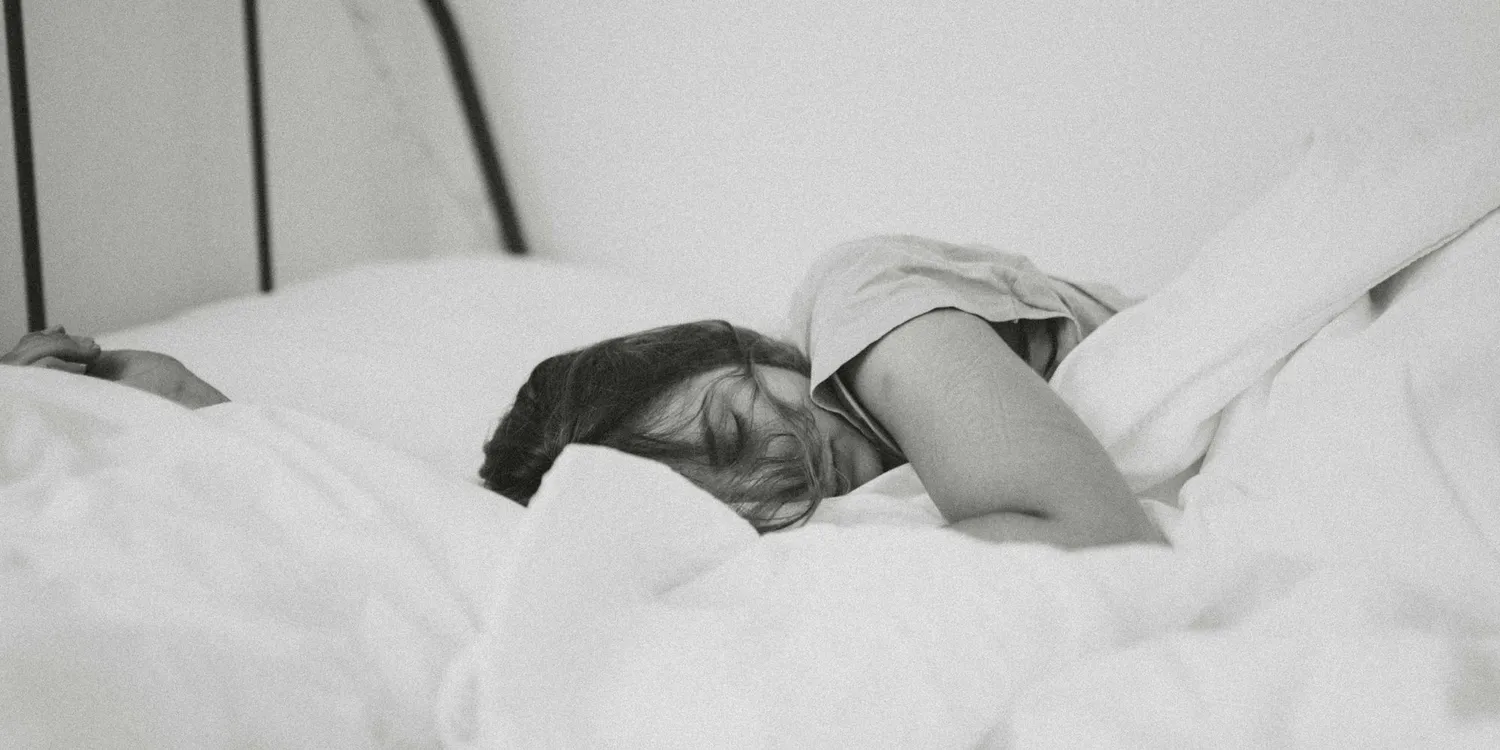28 Nov 2023
How Alcohol Affects Sleep
Alcohol, a common social lubricant and stress reliever, has a complex relationship with sleep. While some may turn to a nightcap to unwind, few realise the potential disruptions it can cause to the sleep cycle. In this comprehensive guide, we'll delve into the intricate connection between alcohol and sleep, exploring its effects on the brain, behaviour, and the troubling link between alcohol addiction and insomnia. Before we proceed, it's essential to note that the information provided is for general purposes only. For personalised advice, consult with a healthcare professional.
Neurological Effects
Alcohol's impact on the brain plays a crucial role in understanding its influence on sleep. While it may initially induce drowsiness, the neurological effects can disrupt the natural sleep cycle. Studies show that alcohol can interfere with REM (Rapid Eye Movement) sleep, the stage associated with vivid dreaming and essential for cognitive function and emotional well-being.
Behavioural Effects
Beyond the neurological realm, alcohol also alters behaviour, potentially leading to poor sleep hygiene. Late-night drinking can contribute to irregular sleep patterns, making it harder to fall and stay asleep. The sedative properties of alcohol may create a deceptive sense of improved sleep quality, while in reality, it compromises the restorative nature of deep sleep.
Alcohol Addiction and Insomnia
Can Alcohol Cause Insomnia?
Insomnia, characterised by difficulty falling or staying asleep, is a common concern for those who consume alcohol regularly. The initial sedative effects may give way to rebound insomnia, contributing to a disruptive sleep cycle.
The Link Between Alcohol Withdrawal and Insomnia
For those battling alcohol addiction, withdrawal symptoms can exacerbate sleep disturbances. Explore further insights into this connection in our articles on the "Alcohol and the Kindling Effect" and "Dangers of Alcohol Withdrawal."
How to Get Sleep During Alcohol Withdrawal
Navigating sleep during alcohol withdrawal can be challenging. For practical tips, refer to our brief list below, and for more in-depth guidance, explore coping mechanisms detailed in the "How to Detox From Alcohol Safely & Symptoms of Withdrawal page.
- Maintain a consistent sleep schedule.
- Create a relaxing bedtime routine.
- Limit caffeine and screen time before bed.
What Are Some Other Effects of Alcohol on Sleep?
Coping with Alcohol-Related Sleep Problems
As we navigate the intricate relationship between alcohol and sleep, it's essential to equip ourselves with effective coping strategies. Explore the following tips to manage sleep issues related to alcohol consumption:
Tip #1: Reduce Stimulants in the Evening
Limiting caffeine and other stimulants in the evening can contribute to a more restful night's sleep.
Tip #2: Maintain a Consistent Schedule
Establishing a consistent sleep schedule helps regulate the body's internal clock, promoting healthier sleep patterns.

How to Get Help With Alcohol Addiction
In conclusion, addressing alcohol-related sleep problems involves not only lifestyle changes but also seeking help for underlying addiction issues. For personalised guidance and support, reach out to healthcare professionals or explore resources on the "How To Detox From Alcohol Safely & Symptoms of Withdrawal" page.
Related Articles
Expand your understanding of the relationship between alcohol and health with our related articles:
- [https://rehabsuk.com/blog/cocaine-and-sleep-what-problems-can-it-cause/]
- [https://rehabsuk.com/blog/dangers-of-alcohol-withdrawal/]
As we navigate the complexities of alcohol and sleep, let this guide be a stepping stone towards better sleep hygiene and overall well-being. If you or someone you know is struggling with alcohol-related issues, don't hesitate to get in contact with our professional team at Rehabs UK. Your journey to healthier sleep begins with informed choices and proactive steps towards well-being.
